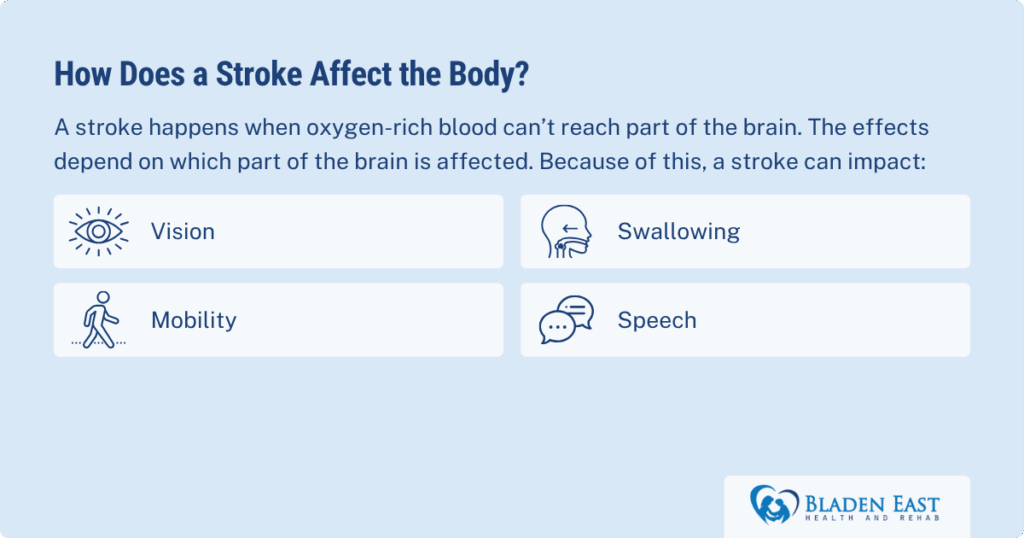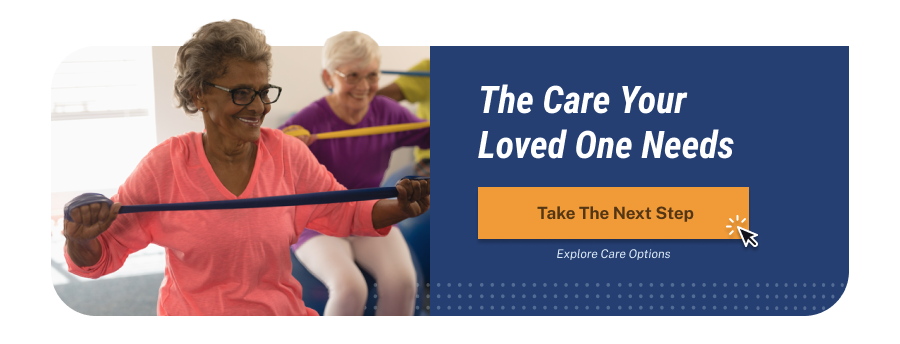How Does Speech Therapy Help After a Stroke?
It happens almost 700 times a day, and chances are you don’t even think about it.
On average, you swallow once a minute when you’re awake, and even more when you’re eating.
It’s easy to take swallowing for granted until you’re unable to do it. Swallowing difficulties are quite common after a stroke. This is one example of when a speech therapist can help those who have had a stroke.
Speech therapists can help those who have had a stroke learn to effectively swallow again. At this point, you’re probably wondering, where can I find outstanding speech therapy near me? For residents of Bladen County, that answer is as simple as two words: Bladen East.
Speech Therapy After a Stroke
When you think of speech therapy, you probably think about learning to speak clearly again or helping someone overcome some common speech disorders.
But it is much more than that.
It’s a gateway to returning to everyday functioning, and its guidance to help you discover new skills that will assist you.
What Does a Speech Therapist Do for Stroke Patients?
A speech therapist helps those who have had a stroke regain communication skills. Therapists particularly help patients with aphasia—a condition experienced by roughly 40 percent of stroke survivors.
What is Aphasia?
This disorder affects your ability to process language. If you have aphasia, you’ll have difficulty reading and writing as well as speaking. Most people with aphasia also have a hard time understanding others.
However, it’s important to note that aphasia does not affect intelligence, and aphasia is not a mental illness.
Other Ways Speech Therapists Help Stroke Survivors
You may not realize it, but swallowing is a very complicated process that involves roughly 50 pairs of muscles. If something goes wrong with one set, it starts a chain reaction that can make swallowing very difficult. This condition is called dysphagia.
An estimated 15 percent of Americans have some type of issue swallowing, and this is much more prevalent for those who have had a stroke.
How Does a Stroke Affect Speech and Language?
First, it’s important to realize that a stroke won’t affect everyone in the same way. A stroke occurs when oxygen-rich blood can’t reach the brain. The results of the stroke depend in large part to what part of the brain was affected.

According to the American Stroke Association, the results also depend upon what side of your brain is injured. For example, if the left side of your brain was the target of the stroke, you’re more likely to have problems with speech, language and memory loss. If the right side of your brain was affected, you could experience paralysis and vision problems.
The National Institutes of Health give this example of how language can be transformed after a stroke: Often, certain smaller words are omitted from their speech, such as “and,” “is,” and “the.” So “I am going to take the dog for a walk” becomes “walk dog.”
Even these short phrases often take a large amount of effort.
Speech Therapy Exercises
Every case is different, and your speech therapist will work with you on your rehabilitation program and consult with your health care team to create a plan tailored just for you.
If you’re having trouble swallowing, your speech therapist may ask you to do exercises such as:
- Using a straw to pick up small pieces of paper, move them to a cup, and then stop sucking to release the paper.
- Squeezing the muscles associated with swallowing during a “dry swallow.” You may be asked to repeat this 10 times during your session.
- Performing specific exercises to strengthen your tongue.
Does Speech Return After a Stroke?
Every case is different, and the outcome depends in large part on what part of the brain was affected and how severe the damage was. But in many cases, speech can return after a stroke, although this requires a lot of rehabilitative speech therapy.
Bladen East—Where Our Goal Is Your Independence
When you survive a stroke, you face a long, challenging road to recovery. At Bladen East, our physical, occupational and speech rehabilitation therapies are geared toward helping you regain as much independence as possible.
While some similar facilities are owned by large corporations, Bladen East is part of a family owned business. We’re active in our community, and we’re dedicated to treating you with dignity and respect until you have recovered and are able to return to your home.
We invite you to see for yourself. Schedule a virtual tour to learn more.


